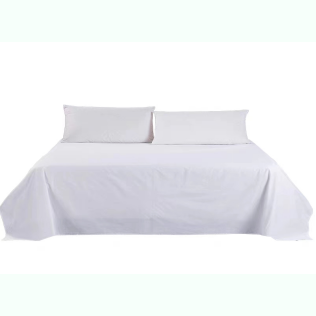

In the quiet hum of machinery and the rhythmic dance of needles, the heart of a linen factory beats. These factories, often tucked away from the bustling urban landscapes, are where the magic of creating exquisite bed linens, luxurious towels, and delicate tablecloths happens. For those of us who revel in the comfort of freshly laundered sheets or the elegance of a well-set table, it's easy to overlook the complex processes and skilled craftsmanship that bring these everyday luxuries to life. Let's take a journey into the fascinating world of room linen factories and uncover the artistry and innovation behind our favorite home textiles.
At the core of every linen factory is the art of textile production. This age-old craft combines traditional techniques with modern technology to create products that are not only functional but also beautiful. The journey begins with the selection of raw materials. High-quality linens typically start with natural fibers like cotton, flax, or bamboo, each chosen for their unique properties. Cotton, known for its softness and durability, is a staple in bed linens. Flax, the source of linen fabric, is prized for its strength and breathability, making it ideal for both bedding and table linens. Bamboo, a newer contender, offers a sustainable option with its silky texture and hypoallergenic properties.
Once the fibers are selected, they are spun into yarns and then woven into fabric. This process takes place on large looms, where precision and timing are crucial. In a room linen factory, the sight of these looms in action is nothing short of mesmerizing. Threads are interlaced with meticulous accuracy, creating a variety of weaves such as percale, sateen, or twill, each offering different textures and finishes. Percale weaves produce crisp and cool fabrics, perfect for summer bedding, while sateen weaves create a smooth and lustrous surface, ideal for a touch of luxury.
After weaving, the fabric undergoes dyeing and printing, bringing color and patterns to life. In a room linen factory, this stage is where creativity flourishes. From solid hues to intricate designs, the possibilities are endless. Traditional dyeing methods coexist with modern techniques like digital printing, allowing for detailed and vibrant patterns that were once unimaginable. Imagine a duvet cover adorned with a vivid floral design or a set of towels in the perfect shade to match your bathroom decor. This is where the magic happens, transforming plain fabric into something uniquely beautiful.
The final stages of production involve cutting, sewing, and finishing the linens. Skilled seamstresses and tailors work with precision to ensure every piece meets the highest standards. In a room linen factory, attention to detail is paramount. Edges are hemmed, seams are reinforced, and embellishments like embroidery or lace are added to enhance the aesthetic appeal. Quality control teams meticulously inspect each item, ensuring that only the finest products make it to the market. This dedication to craftsmanship is what sets high-quality linens apart from the rest.
Modern room linen factories are not just about creating beautiful products; they are also committed to sustainability and innovation. The textile industry has a significant environmental footprint, and leading manufacturers are taking steps to reduce their impact. From sourcing organic and sustainable fibers to implementing energy-efficient processes, these factories are striving to create eco-friendly products without compromising on quality.
Recycling and waste reduction are also key components of a sustainable room linen factory. Scraps of fabric are repurposed, and water used in dyeing processes is treated and reused. Some factories even incorporate renewable energy sources like solar or wind power. By adopting these practices, room linen factories are paving the way for a more sustainable future.
While the machinery and technology in a room linen factory are impressive, it is the people who bring the products to life. Skilled artisans, designers, and engineers work together to create linens that provide comfort and beauty to homes around the world. Their expertise and passion are evident in every stitch, every pattern, and every finished product. Visiting a room linen factory offers a glimpse into their world, revealing the dedication and hard work that go into making our everyday textiles.
Room linen factories have a global influence, with products reaching homes in every corner of the world. European factories are renowned for their luxurious linens, often associated with high-end hotels and boutique inns. Italian and French manufacturers, in particular, are celebrated for their exquisite designs and superior craftsmanship. In Asia, countries like India and China are major players in the linen industry, combining traditional techniques with mass production to meet global demand.
The cultural heritage of these regions often influences the designs and techniques used in production. For example, Indian textiles might feature intricate block prints and vibrant colors, reflecting the country's rich artistic traditions. Chinese linens might incorporate silk and traditional embroidery techniques, adding a touch of elegance and history to modern products.
Understanding the journey of linens from factory to home deepens our appreciation for these everyday luxuries. The next time you slide between crisp sheets or wrap yourself in a soft towel, take a moment to consider the craftsmanship and innovation that made it possible. Room linen factories are more than just production facilities; they are places where art, science, and dedication converge to create products that enhance our lives.
Whether you are a connoisseur of fine linens or simply someone who enjoys the comfort of a well-made bed, the world of room linen factories offers a fascinating insight into the creation of the textiles we often take for granted. So, the next time you find yourself admiring a beautifully set table or the perfect fold of a hotel bedspread, remember the journey that brought those linens to you, and the skilled hands that made it all possible.
6-20 个字符(仅限字母加数字)
密码不一致